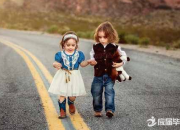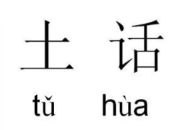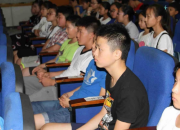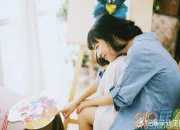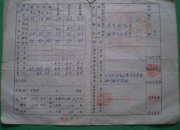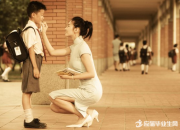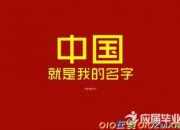新年的英文手抄报
时间:2021-08-31引导语:对于手抄报想必很多人都做过,做手抄报亦是一件非常有趣的事情,那么关于新年的英文手抄报要怎么做呢?接下来是小编为你带来收集整理的关于新年的英文手抄报,欢迎阅读!




关于新年的英文手抄报内容一
春节英文介绍
The Spring Festival is the most important festival for the Chinese people and is when all family members get together, just like Christmas in the West. All people living away from home go back, becoming the busiest time for transportation systems of about half a month from the Spring Festival. Airports, railway stations and long-distance bus stations are crowded with home returnees.
Strictly speaking, the Spring Festival starts every year in the early days of the 12th lunar month and will last till the mid 1st lunar month of the next year. Of them, the most important days are Spring Festival Eve and the first three days. The Chinese government now stipulates people have seven days off for the Chinese Lunar New Year.
Many customs accompany the Spring Festival. Some are still followed today, but others have weakened.
On the 8th day of the 12th lunar month, many families make laba porridge, a delicious kind of porridge made with glutinous rice, millet, seeds of Job's tears, jujube berries, lotus seeds, beans, longan and gingko.
The 23rd day of the 12th lunar month is called Preliminary Eve. At this time, people offer sacrifice to the kitchen god. Now however, most families make delicious food to enjoy themselves.
After the Preliminary Eve, people begin preparing for the coming New Year. This is called “Seeing the New Year in”.
Store owners are busy then as everybody goes out to purchase necessities for the New Year. Materials not only include edible oil, rice, flour, chicken, duck, fish and meat, but also fruit, candies and kinds of nuts. What's more, various decorations, new clothes and shoes for the children as well as gifts for the elderly, friends and relatives, are all on the list of purchasing.
Before the New Year comes, the people completely clean the indoors and outdoors of their homes as well as their clothes, bedclothes and all their utensils.
Then people begin decorating their clean rooms featuring an atmosphere of rejoicing and festivity. All the door panels will be pasted with Spring Festival couplets, highlighting Chinese calligraphy with black characters on red paper. The content varies from house owners' wishes for a bright future to good luck for the New Year. Also, pictures of the god of doors and wealth will be posted on front doors to ward off evil spirits and welcome peace and abundance.
The Chinese character “fu” (meaning blessing or happiness) is a must. The character put on paper can be pasted normally or upside down, for in Chinese the “reversed fu” is homophonic with “fu comes”, both being pronounced as “fudaole.” What's more, two big red lanterns can be raised on both sides of the front door. Red paper-cuttings can be seen on window glass and brightly colored New Year paintings with auspicious meanings may be put on the wall.
People attach great importance to Spring Festival Eve. At that time, all family members eat dinner together. The meal is more luxurious than usual. Dishes such as chicken, fish and bean curd cannot be excluded, for in Chinese, their pronunciations, respectively “ji”, “yu” and “doufu,” mean auspiciousness, abundance and richness. After the dinner, the whole family will sit together, chatting and watching TV. In recent years, the Spring Festival party broadcast on China Central Television Station (CCTV) is essential entertainment for the Chinese both at home and abroad. According to custom, each family will stay up to see the New Year in.
关于新年的英文手抄报内容二
Far and away the most important holiday in China is Spring Festival, also known as the Chinese New Year. To the Chinese people it is as important as Christmas to people in the West. The dates for this annual celebration are determined by the lunar calendar rather than the Gregorian calendar, so the timing of the holiday varies from late January to early February.
To the ordinary Chinese, the festival actually begins on the eve of the lunar New Year's Day and ends on the fifth day of the first month of the lunar calendar. But the 15th of the first month, which normally is called the Lantern Festival, means the official end of the Spring Festival in many parts of the country.
总的来说在中国最重要的节日是春节,亦称中国新年。对中国人民来说它的重要性就如方圣诞节对于西方人民。这个一年一次的节日日期取决于阴历而不是格里历,因此假日的时间变化从一月下旬到上旬2月。而对普通的中国人,节日总是在除夕夜开始,结束于阴历的第一个月的第五天。 但1第一个月的15号,通常称灯会,在国家的大部分地区意味春节的正式结尾。
"Guo Nian," meaning "passing the year," is the common term among the Chinese people for celebrating the Spring Festival. It actually means greeting the New Year. At midnight at the turn of the old and New Year, people used to let off fire-crackers which serve to drive away the evil spirits and to greet the arrival of the New Year. In an instant the whole city would be engulfed in the deafening noise of the firecrackers.
“过年”意义为“度过这一年”,是中国百姓庆祝春节的共同术语。它事实上意味着欢迎新的一年。在新旧年交替的午夜,百姓习惯的放会赶走怪物的烟火,并且欢迎新年的到来。在那一瞬间,整个城市都响彻爆竹的震耳欲聋的声音。
关于新年的英文手抄报内容三
I wish you good health in the new year.
祝你身体健康。
Warm wishes to you and your family for a wonderful New Year!
祝你和你的家人有个美好的新年
Wishing you a happy and abundant New Year!
祝你有个愉快和丰盛的新年!
With very best wishes for your happiness in the New Year.
致以最良好的祝福,原你新年快乐幸福。
Good luck, good health, hood cheer. I wishyou a happy New Year.
祝好运、健康、佳肴伴你度过一个快乐新年。
With best wishes for a happy New Year!
祝新年快乐,并致以良好的祝福。
I hope you have a most happy and prosperous New Year.
谨祝新年快乐幸福,大吉大利。
With the compliments of the season.
祝贺佳节。
A happy New Year to you.
恭贺新年。
Season's greetings and sincere wishes for a bright and happy New Year!
献上节日的问候与祝福,愿你拥有一个充满生机和欢乐的新年。
I give you endless brand-new good wishes. Please accept them as a new remembrance of our lasting friendship.
给你我无尽的新的祝福,让它们成为我们永恒友谊的新的纪念。
Good luck and great success in the coming New Year.
祝来年好运,并取得更大的成就。
On the occasion of the New Year, may my wife and I extend to you and yours our warmest greetings, wishing you a happy New Year, your career greater success and your family happiness.
在此新年之际,我同夫人向你及你的家人致以节日的问候,并祝你们新年快乐、事业有成、家庭幸福。
May everything beautiful and best be condensed into this card. I sincerely wish you happiness, cheerfulness and success.
愿一切最美好的祝福都能用这张贺卡表达,真诚地祝你幸福、快乐、成功。

